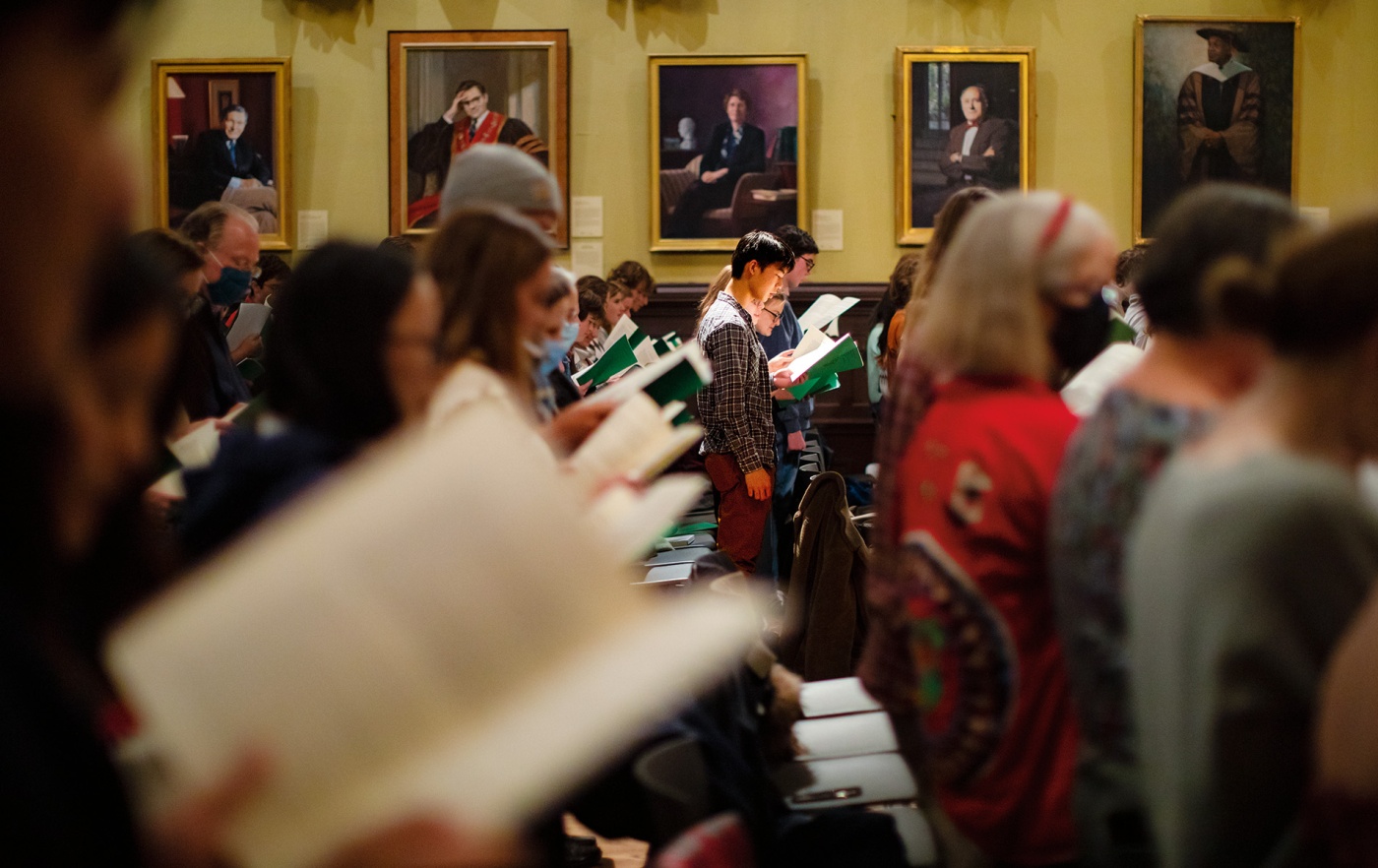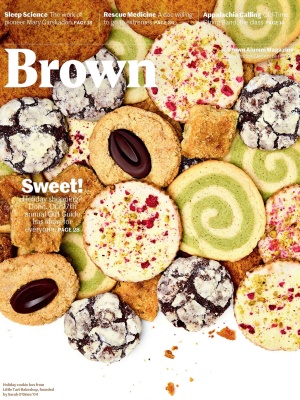For one night every December, Sayles Hall becomes a portal in time.
“Studentes, amici, oppidani Providentiales…vos omnes salutamus,” Professor of Classics Jeri Debrohun announced to a nearly full crowd last December 4 at the 75th Latin Carol Celebration.
The words, which translate to “Students, friends, and citizens of Providence…we greet you all” are in Latin, a language whose last native speakers died off in the 7th century CE. Despite its long absence from daily speech, Latin is bolstered by a strong tradition of scholarship and continues to attract enthusiastic learners from all over the world. And for this one night each December, learners and non-learners alike can gather to hear Latin spoken, chanted, and sung, temporarily restored to full life.
Programming includes popular holiday carols, readings of texts in ancient languages, and performances by a capella groups. Easy to follow songbooks allow non-Latin speakers to join in singing holiday classics such as “Adeste Fideles” (“Oh Come all Ye Faithful”), “Ornate Ramosis Aulas” (“Deck the Halls”), and “Nox Silens” (“Silent Night”). A crowd favorite last year was “The Twelve Days of Christmas,” rendered as “Duodecim Dies Natales” and performed by the Chattertocks.
For Debrohun, the program’s director (or Magistra Equitum) since 2005, the program speaks to the importance of tradition: “It’s something that’s going back 75 years, but often the readers are reading texts that span thousands of years.” Such traditions, “to the extent that they can be maintained thoughtfully,” she adds, “are a valuable aspect of our world.”
That’s not to say the program hasn’t evolved. Original programming focused on Greek and Latin texts, but recent celebrations have included Sanskrit readings to better reflect the languages offered by the Department of Classics. And while the opening speech (salutatio) used to be something of an inside joke among Latin speakers, Debrohun began to print English translations to include more members of the community. Last year, much of the salutatio was lighthearted and congratulatory, celebrating the victories of Brown’s soccer and rugby teams, the appointments of new post-doctoral fellows in the classics department, and the spotting of rare warblers. Debrohun also took time to mourn the recent passing of Professor Emeritus Kurt Raaflaub, to whom the event was dedicated.
Debrohun often uses words like community, tradition, and fun to describe the event. For her, it’s not just the language that comes alive—it is the room itself. Above all, she says, the celebration is a rare gathering “where you can have 500-plus people in a room all being happy together for an hour.”
The Latin Carol Celebration occurs on the second Monday after Thanksgiving each year.





